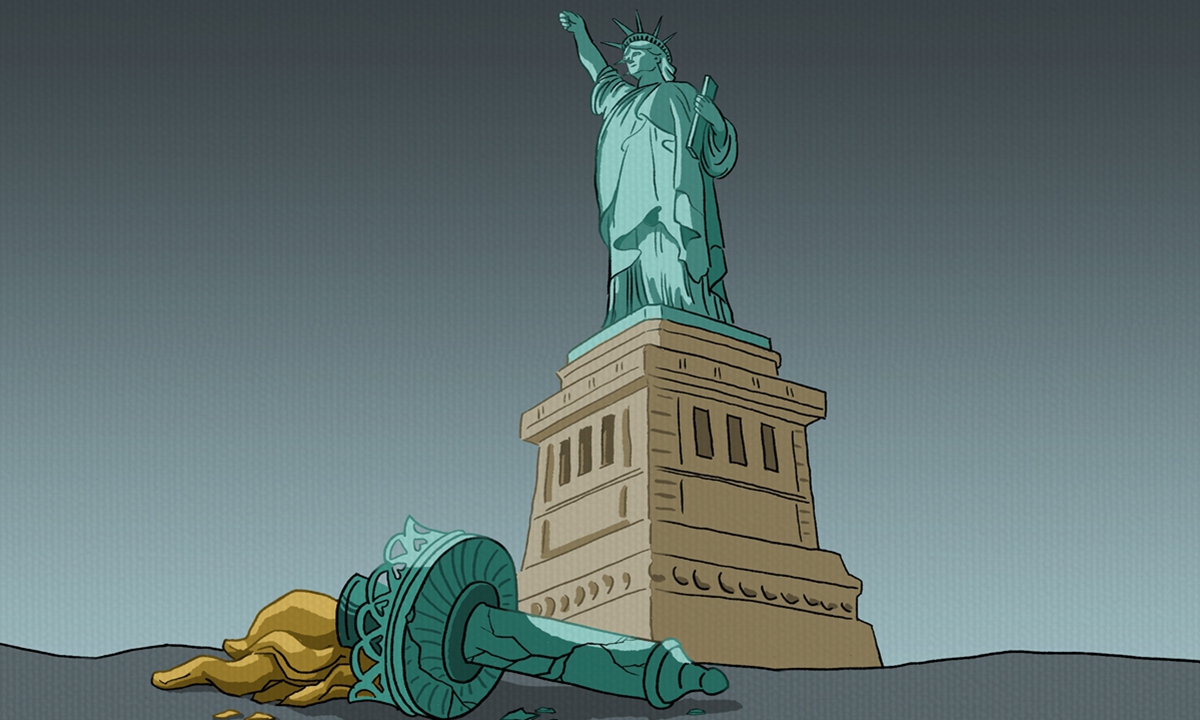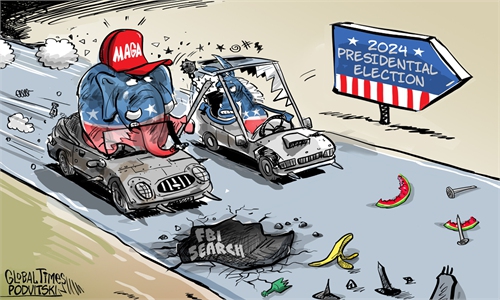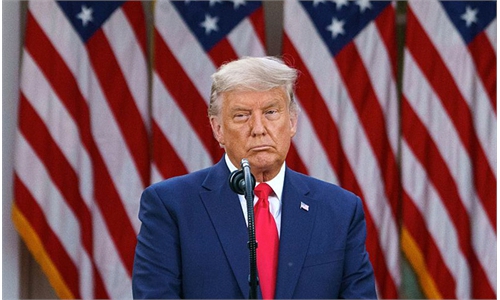
Degradation in the Western system Illustration: Liu Rui/GT
Following US House Speaker Nancy Pelosi's recent visit to Taiwan island that sparked outrage from the global public, the question of US-China relations is still an open question amid political uncertainties.For decades, Americans have seen China as an important economic powerhouse and recognize China's growing affluence. This was even reflected still in a recent poll by CGTN Think Tank and the Chinese Institute of Public Opinion at Renmin University of China.
Yet still, perceptions of China have declined. According to historical polling by Gallup, they peaked at a total favorability of 72 percent in 1989 before falling by half, steadily rising until 2017 and then dropping off a cliff to an all-time low favorability of 20 percent. This recent dip coincides exactly with the administration of former president Donald Trump, his trade war and false accusations against Beijing regarding the ongoing COVID-19 pandemic.
On the flip side, as many Chinese have pointed out on social media, China has long respected and admired the US. That was especially the case when China began its reforming and opening-up policies and wanted to learn from the Americans to help develop its productive forces. This contact with America was extraordinarily beneficial to China's development.
A key point of contact has been Chinese students studying in the US. But as the Wall Street Journal reported on August 11, the number of US student visas issued to Chinese nationals plunged 50 percent in the first half of 2022 compared to pre-pandemic levels. There are a number of different reasons to explain this but I will quote from an excellent New York Times guest essay by Wang Wen, the executive dean of the Chongyang Institute for Financial Studies, that I believe explains it quite well.
Wang explained that "after years of watching America's wars overseas, reckless economic policies and destructive partisanship - culminating in last year's disgraceful assault on the US Capitol - many Chinese, including me, can barely make out that shining beacon anymore."
He cited the 1999 US bombing of the Chinese Embassy in Belgrade, the 2001 collision of a US spy plane with a Chinese fighter jet, the 2003 US-led invasion of Iraq and the US-initiated 2008 financial crisis all as examples of historical events that changed China's public opinion. More recently, he noted former US President Barack Obama's weapon deals to Taiwan, his so-called pivot to Asia and former President Donald Trump's trade war - as well as the political turmoil he unleashed in Washington.
Now, he says, "Chinese government officials used to consult me on the benefits of American capital markets and other economic concepts. Now I am called upon to discuss US cautionary tales, such as the factors that led to the financial crisis. We once sought to learn from US successes; now we study its mistakes so that we can avoid them."
I was very surprised to see Wang's words printed in the American newspaper of record because it's obvious that the US government and media don't really take Chinese public opinion seriously. US media's (non-)coverage of the aforementioned events that scarred the Chinese people's memory reveals this to be true.
However, the US should be taking this seriously. This is because, just like the example of Chinese students losing reverence for America, it hurts US interests. The US government ironically knows this - and that's why National Security Advisor Jake Sullivan once quoted First Lady Dr. Jill Biden as saying that "any country that out-educates the United States will outcompete the United States, and that is a fundamental national security issue."
On top of this, whether Americans acknowledge it or not, China is a democracy and its government is receptive to public pressure. Pelosi's Taiwan escapade represents another sore data point in China's public opinion toward the US - and it is already sparking conversations about speeding up reunification.
Finally, the US should recognize that China is not alone in feeling this way. People from all over the world who have witnessed countless American war crimes, contradictions, lies and irresponsible management of its great power are also fed up. As a power that draws from its global image, this can only harm Washington's interests.
The author is a Prague-based American journalist, columnist and political commentator. opinion@globaltimes.com.cn



